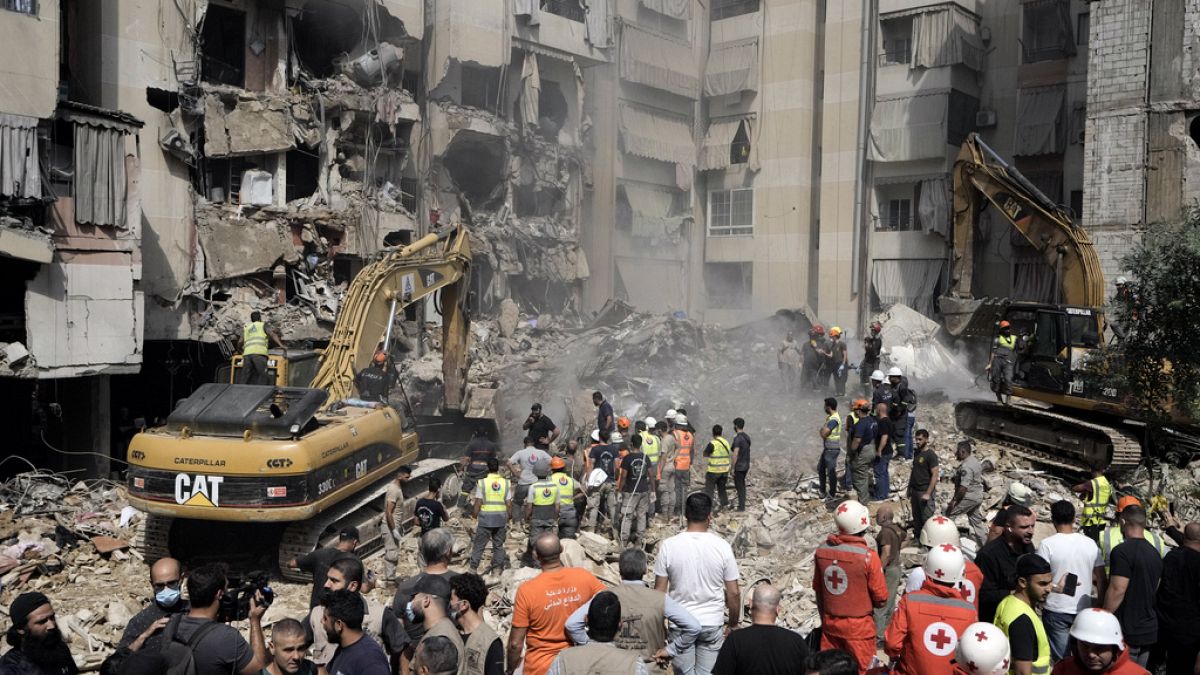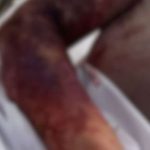Hezbollah confirmed the death of a second commander in a deadly Israeli Defense Forces (IDF) attack in Beirut, Lebanon, which resulted in the deaths of at least 31 people and numerous injuries. The strike occurred in a densely populated southern neighborhood during rush hour, causing significant damage to buildings in the area. Among those killed were 11 Hezbollah operatives, including Ibrahim Akil, the head of the group’s elite Radwan Force. The Lebanese Red Cross and military personnel were on the scene conducting search and rescue operations, with fears that the casualty count could rise as recovery efforts continue.
Lebanon’s health minister reported that the death toll from the airstrike had risen to 31, with 68 people wounded and 15 still in hospital. The attack was the deadliest targeting the Lebanese capital since the 2006 Israel-Hezbollah war. Hezbollah announced that 15 of its operatives had been killed, including high-ranking commanders Ahmed Mahmoud Wahbi and Ibrahim Akil. With 23 people still missing, worker teams were seen excavating the rubble from the damaged and destroyed buildings in the area. The missile strike on the residential street resulted in the destruction of an eight-story building and significant damage to a neighboring structure where the Hezbollah meeting was taking place.
Following the deadly strike in Beirut, Hezbollah launched a barrage of rockets towards northern Israel, targeting military sites. Israel’s Iron Dome missile defense system intercepted most of the rockets, preventing significant damage. Hezbollah’s rocket salvos were seen as retaliation for Israeli strikes on southern Lebanon, although the timing came after a devastating explosion in southern Lebanon that killed many and wounded thousands, with Israel suspected to have been involved. Hospitals in Lebanon reported being overwhelmed with wounded, underscoring the impact of the ongoing conflict between Israel and Hezbollah along the Lebanon-Israel border.
The escalating tensions between Israel and Hezbollah have led to a mass evacuation of residents from both southern Lebanon and northern Israel. The Israeli security cabinet identified stopping Hezbollah attacks in northern Israel as a key war goal and has increased military presence along the border. Previous cross-border attacks have typically targeted less-populated areas, but recent strikes have caused significant damage and casualties in urban centers. As both sides continue to exchange fire, the risk of a wider conflict looms, with thousands of people displaced and living in fear of further violence in the region.
In light of the recent airstrikes and rocket attacks, the situation in Lebanon remains tense, with ongoing efforts to recover and identify victims in the aftermath of the deadly strike in Beirut. The international community has called for de-escalation and a return to negotiations to avoid further loss of life and destruction. The impact of the conflict on civilians, infrastructure, and regional stability underscores the urgent need for a diplomatic resolution to prevent further violence and suffering in the region. As Hezbollah and Israel continue to engage in hostilities, the toll on innocent civilians and the risk of a broader conflict highlight the need for international intervention to secure a lasting peace in the region.











